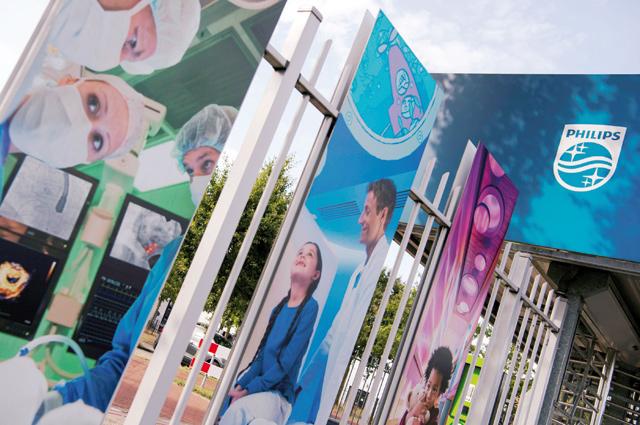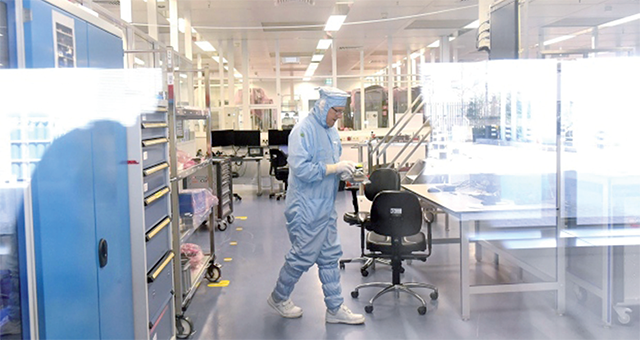You are here
Electronics giant Philips posts mixed results in Q3
By AFP - Oct 22,2018 - Last updated at Oct 22,2018

Philips Healthcare entrance is seen in Best, Netherlands, on August, 30 (Reuters file photo)
THE HAGUE — Dutch electronics giant Philips, which is focusing its business on medical equipment and services, on Monday posted higher third quarter sales but profits dipped due to currency headwinds.
Sales rose 4 per cent to 4.3 billion euros ($4.9 billion) year-on-year and orders for the Amsterdam-based group’s medical diagnostic and treatment machines grew 11 per cent.
Net profit in the three months to September fell to 292 million euros from 423 million euros a year earlier.
“While I am pleased with the continued strong 11 per cent order intake growth in the quarter, operational improvements were partly offset by foreign exchange headwinds,” Philips Chief Executive Frans van Houten said.
Philips Chief Financial Officer Abhijit Bhattacharya told a teleconference Philips was particularly hit by falls in the Turkish lira and Argentine peso.
Best known for the manufacture of light bulbs, electrical appliances and television sets, Philips has gradually pulled out of these activities in face of fierce competition from Asia.
It focuses now more on high-end medical and health technology, such as computer tomography and molecular imaging, as well as household appliances.
The group, which sold its first light bulb a few years after it was founded in 1891, moved to list its Philips Lighting division, now known as Signify, in mid-2016 which joined the Amsterdam stock exchange, the top-tier AEX, in March this year.
Philips reiterated its objective of increasing sales by 4-6 per cent in the 2017-2020 period.
The group, however, said in view of growing tensions in international trade, it planned to promote local production further, for instance in China, to try to avoid the fallout from tit-for-tat trade wars between Beijing and Washington.
“It’s good to know that Philips distributes production activities in a uniform way around the world, with about one-third in Europe, one-third in China and one-third in the US,” Philips spokesman Ben Zwirs told AFP.
“This creates flexibility.”
Related Articles
Dutch electronics giant Philips on Tuesday said it was selling a majority stake in its LED and car lighting arm to a consortium led by China and US-based GO Scale Capital investment fund in a deal worth $2.8 billion.
THE HAGUE — Dutch medical tech firm Philips posted a nine percent jump in second-quarter sales and a return to profit on Monday as it bounce
THE HAGUE — Dutch tech giant ASML, which supplies chipmaking machines to the semiconductor industry, reported on Wednesday a rise in annual















